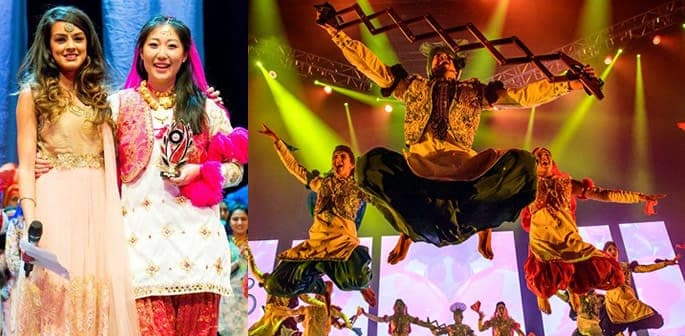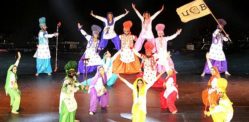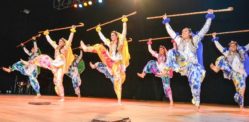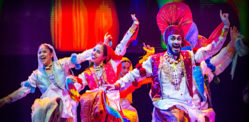"It’s nice to know that more cultures are getting to know about the art of Bhangra!"
The competitive UK Bhangra scene has truly transformed in the last ten years.
We have previously explored how the UK Bhangra scene saw a revival in 2007. Since then, UK Bhangra scene witnessed regular competitions between universities, all-girl teams and global recognition.
It has been an incredible, whirlwind journey.
But where does competitive UK Bhangra go from here?
In the final part of ‘The History of Competitive UK Bhangra’ series, DESIblitz explores how the competitive UK bhangra scene has diversified and its plans for the future.
2016 ~ All About Inclusivity and Integration
2016 became the year with the most competitions ever, with five UK Bhangra competitions taking place. TBC was a new competition established to accommodate the record number of university teams that had applied to perform at Capital Bhangra.
Harwinder Mander, who organised three of the competitions, explains: “It was satisfying to know we had developed the scene so much over those last five years that we were able to provide a competitive stage to 20 separate teams in 2016.”

Likewise, there has been a growing number of independent teams, particularly London based, that had their first chance to compete independently at Folk Stars 2016. These include Jashan Jawani Da and Lok Nach Bhangra.
Amar Singh, the captain of Jashan Jawani Da, tells DESIblitz: “From personal experience, I would say it was very hard to get our actual name out there in the earlier stages. Unless you are competing at competitions it’s hard to really show people what your team is really about.”
Notably, in 2016, there were opportunities for greater integration between teams – whether through collaborative exhibition acts or teams holding classes open to all.
Asad Afzal Khan, co-founder of Nachda Sansaar Bhangra Club, said: “At the start, a lot of people would be wary in sharing knowledge about Bhangra so what they learnt they wanted to keep in within their own team. But we want the scene to expand – we saw the North American scene and how huge it was and wanted to get ours to the level where we are recognised just as much as they are.
“We didn’t want the knowledge to be kept and then 10 years down the line, NSBC stops. We would rather pass it on to others who can do something with it and continue the bhangra circuit.”
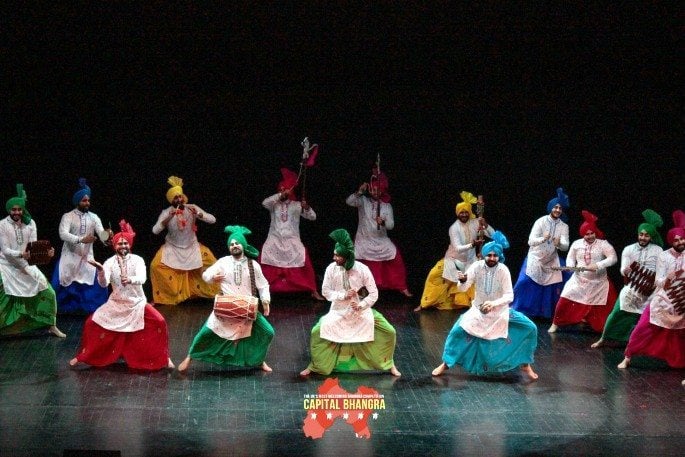
Natasha Kataria, co-founder of Bhangra Punjabian Da, adds:
“By collaborating with other teams, we were able to gain more knowledge and create enough pool of dancers to showcase our passion for Bhangra through sharing.
“This has not only helped to grow our team over the years but making great friends along the journey and we will continue to spread the Bhangra unity.”
Bhangra classes held by King’s College in the summer of 2016 saw dancers from Ankhi Jawan, Gabru Chel Chabileh, Nachda Sansaar, Vasda Punjab and Josh Valaithian Da leading dance sessions and social mixers.
Simrath Mangat, who organised this initiative, said: “I was in a unique position where I was able to reach out to multiple team captains who were quite receptive to me. I hope people just keep pushing it because whilst competing is a big part of Bhangra, the competition period is only three months in a year so the rest of the nine months you can talk to each other.

“Everyone can also enjoy a competition day more if they have met people in a non-competitive environment and become friendly faces instead of dreaded competitors.”
With Punjabi culture being so inclusive and welcoming, the competitive UK Bhangra scene has never fallen short of this and there has been a growing number of non-South Asian dancers doing Bhangra on a recognisable level.
Some of these dancers include Fidelis Bassuah, who has danced competitively for over five years and founded Bhangra Punjabian Da. Jessica Gar-Lai Cheung won best female dancer at TBC 2016 and Capital 2017 and captained the Loughborough Bhangra team. She tells us:
“I am made to feel no different than anyone else. Whether it’s a university or external bhangra, everyone is accepting if you have the right attitude!
“Since I started dancing almost three years ago, I have noticed an increase in non-Punjabi dancers on the scene. It’s nice to know that more cultures are getting to know about the art of Bhangra!”
2017 and Beyond ~ Bringing Innovation and International Teams to the UK
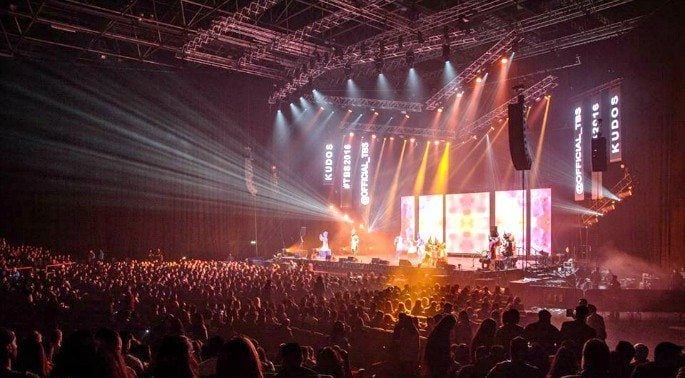
The Bhangra Showdown celebrated 10 years in 2017. Founder, Hardeep Dhanjal, says he and his committee look back on the show with pride and continued support:
“Despite evolution, one common thread is our organising committee, where the torch is passed on to a new committee each year who have the full support of their alumni along with the freedom to take the show in any direction they please.
“As a formula, we feel this is a good example of how youth can be encouraged to engage in our culture, build management skills and not be subject to the political pressures of following in the footsteps of past shows.”
Jagvir Grewal, who was president of Imperial College Punjabi society during TBS 2015 and 2016, believes that the competition has gone “leaps and bounds”:
“We’re no longer just a university show – we’re a professional show that brings some of the best performers in the Punjabi and Bhangra industry and has been held in some of the best venues in the UK. This is whilst our priority always being dancers and making it one of the best stages for them to dance in.”
2017 has already seen both of the University competitions pass and indeed the standard once again hitting a new level.

Simrath Mangat said: “Now there is an abundance of knowledge and the technical ability of dancers has increased so much over the years which allows you to do more. Each team has developed their own style of dancing which something unique about the UK bhangra scene.”
With such high focus being on energy and synchronisation, there is a concern that many teams have reached a frontier where sets are now looking the same and potentially lacking innovation. New dancers are not communicating with older dancers to accrue knowledge and experience, which often forms the foundation for fostering new ideas.
Juhee Pahuja, the captain of St Georges Bhangra Team, says: “I do believe as competitive as Bhangra is, we need to understand its true essence – a part of the fabric of a wonderful culture and connecting with people. The more we talk about Bhangra with each other, the more we can improve and take the Bhangra scene to a better level.”
Competitive UK Bhangra is becoming increasingly recognised on a global scale. Asad Afzal Khan explains how a Bhangra dancer from Spain approached him at about doing workshops in Barcelona, which were successfully held in early May:
“There’s a Holi festival happening in Barcelona with 15-20,000 people turning up. I want to try and get some UK teams to perform there. Sometimes you have to look past the competitive scene and do things outside of it.”
However, in terms of the international competitive scene, Asad says:
“2009, 2010, 2011 were those years where North America was at its peak and now the UK bhangra scene has taken over and we set the benchmarks now.”
“I personally feel that well established teams like AJ, GCC, APPD can compete with the best of teams from North America and Australia. Our teams, dancer to dancer wise, are a lot of stronger than a lot of the teams are overseas so I would like to see them coming over to compete.”
“That will form another turning point in terms of where it takes the UK bhangra scene in the next couple of years.”
From an organisational perspective, Jagvir believes that bringing international teams is an opportunity “that needs to be done in the right way”:
“When organising a competition, you feel responsible for the UK scene. If you bring in an international team, you may be taking away the opportunity for some UK teams,” he says.

There will be more turning points to come in 2017 and beyond where two further competitions have been planned. The first is Bhangra Fest, happening in September 2017 in London, followed by Folkstars.
However, Isha Dhillon Berik, who is organising both of these competitions believes this is just the beginning:
“We are considering more student and independent competitions for next year due to the high demand of applicants this year. We will also make sure a Giddha Competition does happen, even if only two teams come forward!”
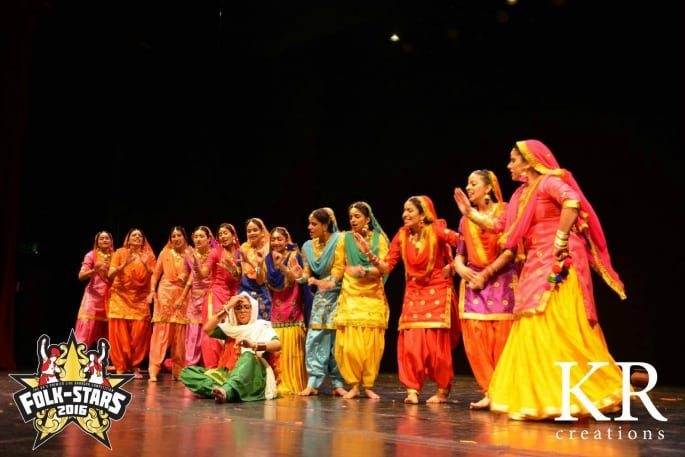
The upcoming competitions promise to bring a new level to UK bhangra as the top teams compete for the revered winning title.
Harpal Singh, of Ankhile Putt Punjab De, says: “I do hope to see future generations of dancers to take the Bhangra scene to even higher heights. Passion, hunger and determination will help keep our folk Bhangra culture alive.”




















































